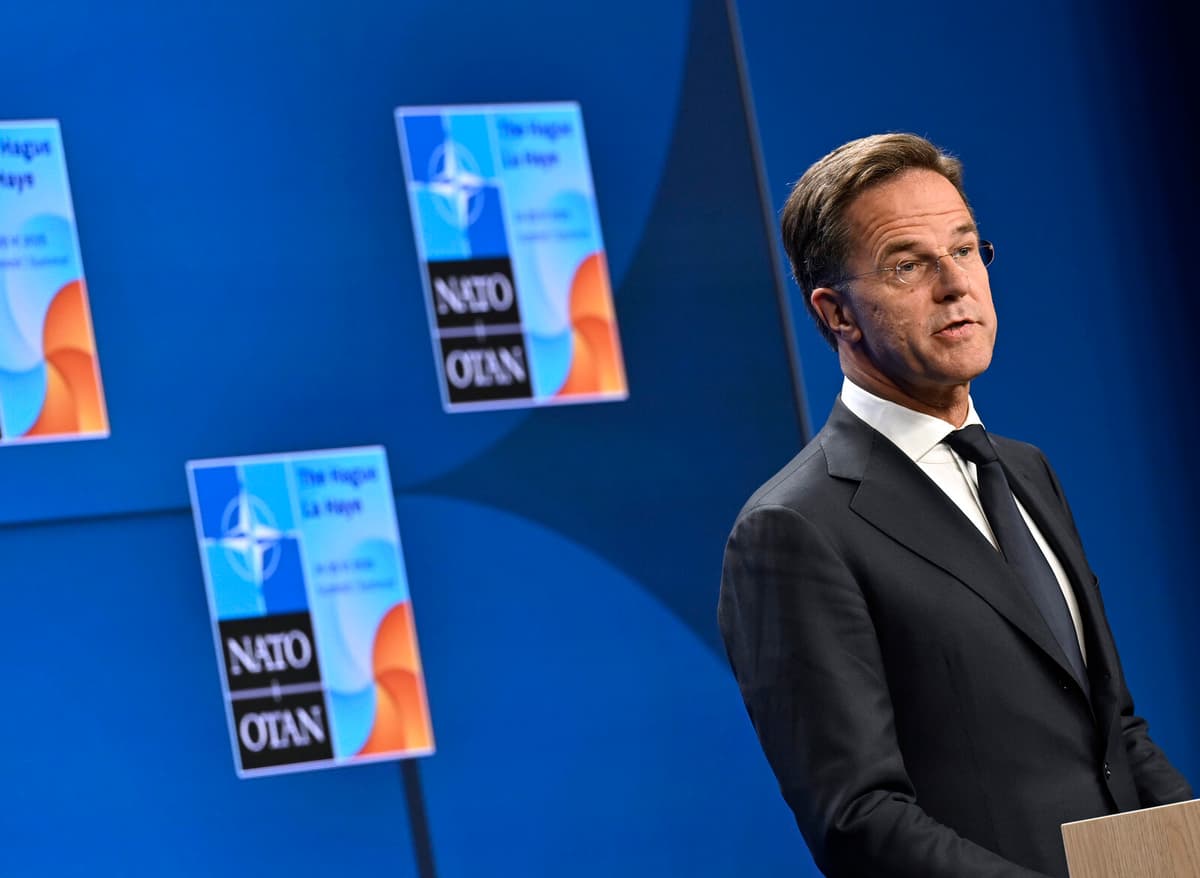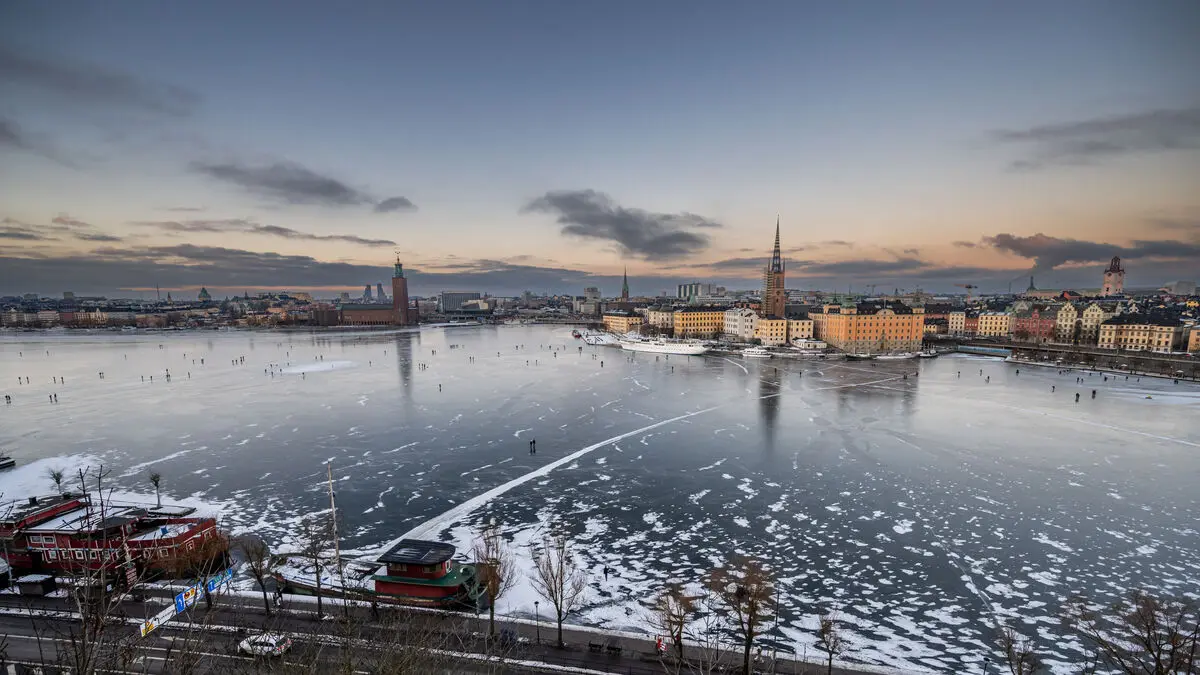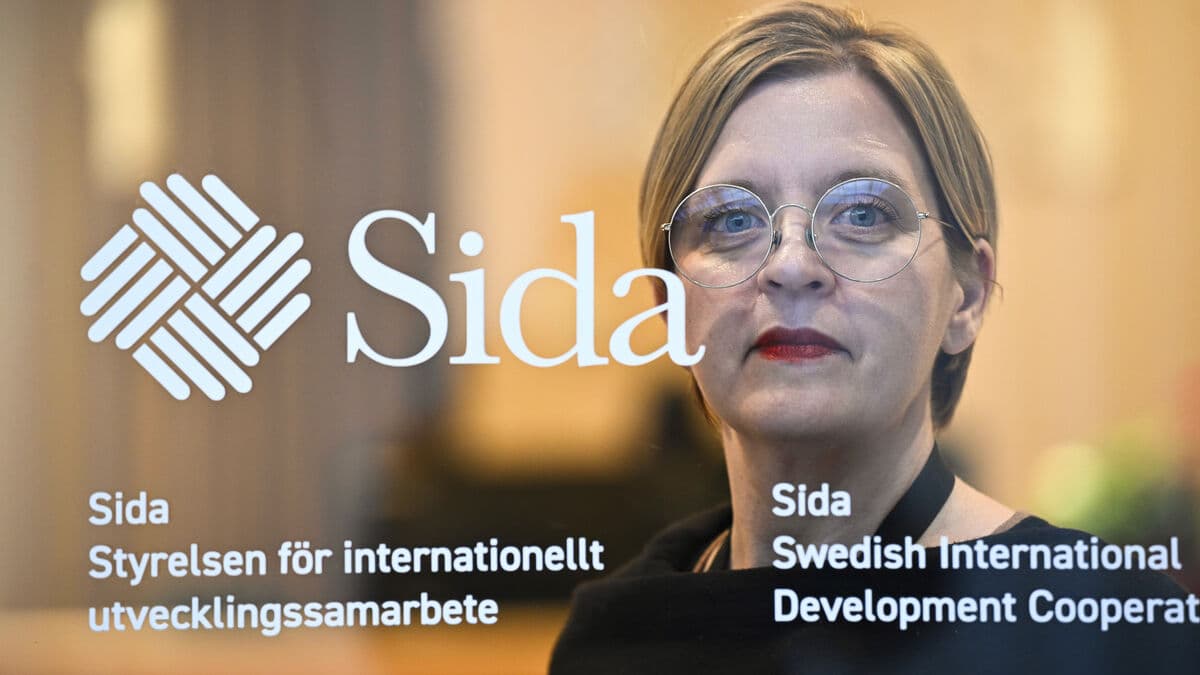The leaders from the 32 NATO countries arrive in the Dutch city of The Hague tomorrow. The main focus of the summit will be that NATO countries must spend more on their collective defense.
The largest and most direct threat to this alliance continues to be Russia, says Rutte at a press conference before the summit.
He repeated his warning that Russia may be ready to attack NATO in five years.
In order for NATO to be able to show unity from the summit, the countries' NATO ambassadors have agreed on a final communication that the prime ministers and presidents can approve without trouble.
According to the communication, NATO countries should aim for their military expenditures to reach 3.5 percent of GDP by 2035. The current goal, which was adopted in 2014, is two percent.
Additionally, 1.5 percent of GDP will be allocated to defense-related expenditures, such as civil defense and certain types of infrastructure.
Spain initially opposed the new goal, but the NATO ambassadors have now managed to reach an agreement by giving Spain more flexibility.
Rutte, however, has difficulty explaining what it means. According to him, no exception has been made for Spain. Rutte states that Spain agrees to meet the requirements for military capability that NATO decided on earlier this spring, but that Spain believes that military expenditures of 2.1 percent of GDP will be sufficient to achieve it.
NATO is absolutely convinced that Spain will need to allocate 3.5 percent, says Rutte.
The Swedish government says yes to both 3.5 percent for military expenditures and an additional 1.5 percent for defense-related expenditures, but prefers that the goal should be achieved already by 2030.
Within NATO, there has been concern that US President Donald Trump would not come to The Hague unless an agreement on a new defense investment target was in place in advance. Trump said as early as last winter that NATO countries should invest five percent of GDP in their defense.
To reduce the risk of conflicts between Trump and other allies, the summit has been shortened and the final communication has been reduced to just one page, according to information in international media.
A sensitive topic is Ukraine. According to Rutte, the final communication will, however, contain "significant writings" on continued support for Ukraine.






